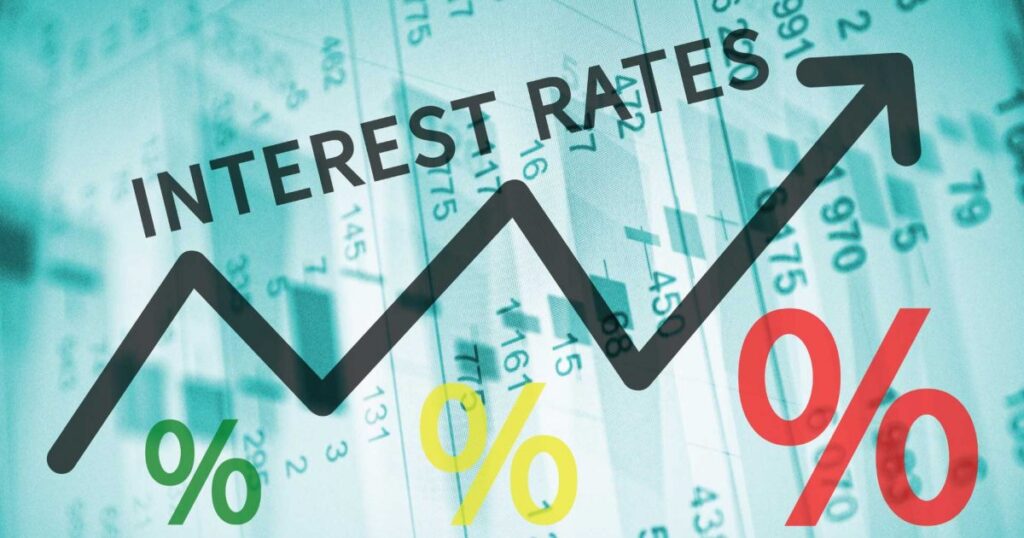Experts have warned that Nigeria’s spiralling interest rates, now well above 20 per cent are worsening poverty and crippling access to credit for small-scale entrepreneurs and farmers, further threatening the fragile economy.
The Central Bank of Nigeria’s aggressive monetary tightening, with the Monetary Policy Rate now at 24.75 per cent, has led to commercial lending rates ranging between 28 per cent and 35 per cent, making it nearly impossible for most businesses and individuals in the productive sectors to access affordable financing.
Financial analysts argued that while the Central Bank aims to curb inflation, the unintended consequence has been a severe credit crunch in sectors critical to employment and economic growth.
They noted that small and medium enterprises, which make up the backbone of Nigeria’s economy, are being squeezed out of the credit market, and farmers are increasingly unable to fund the next planting season.
At the same time, commercial banks are thriving. With risk-free government securities and high-interest lending, banks are posting record profits, while investment in the real economy, including agriculture, manufacturing, and small-scale industries, continues to collapse.
According to the National Bureau of Statistics, over 133 million Nigerians are living in multidimensional poverty. Rising borrowing costs are making it harder for individuals and businesses to access funds for investment, expansion or even basic survival.
A senior analyst at Financial Derivatives Company, Tunde Ajayi, said the imbalance reflects a serious distortion in Nigeria’s financial architecture, one that prioritises the profitability of banks over the health of the real economy.
According to Ajayi, commercial banks are making windfall profits by investing heavily in risk-free government securities and offering loans at exorbitant interest rates to a few large borrowers, while critical sectors such as manufacturing, agriculture, and small and medium enterprises are being financially strangled.
“This model is unsustainable. What we have is a system where banks are incentivised to lend to the government or big corporates at high yields, while millions of small businesses and farmers are left without access to the capital they need to grow,” he mentioned.
He further warned that the long-term implications are dangerous, as it undermines economic diversification, domestic production, and employment generation.
Ajayi stressed that without affordable credit, the real sector responsible for creating jobs and driving inclusive growth will continue to shrink, further widening the gap between the rich and the poor.
He added, “In this kind of climate, job creation suffers, industrial output weakens, and poverty deepens.
“If this distortion is not corrected, Nigeria risks entrenching a rent-seeking economy where financial speculation thrives but real productivity dies.”
Also, an agricultural finance consultant, Ngozi Uko, warned that the situation is even more dire for rural farmers.
“Access to credit for smallholder farmers has virtually dried up. We are seeing a drop in agricultural productivity, which is directly linked to the rise in food prices. Food inflation is now at over 35 per cent, and it’s pushing more Nigerians into hunger,” Uko said.
Meanwhile, recent data from the Nigerian Exchange Group showed that top commercial banks, including Zenith Bank, GTCO and UBA, reported combined pre-tax profits of over N2.4tn in 2023, largely driven by interest income and foreign exchange revaluation.
Also, a financial economist, Dr Andrew Neji, said the high interest rate regime is choking access to affordable credit for micro, small and medium enterprises, which account for 96 per cent of businesses and 84 per cent of employment in Nigeria.
“When lending rates hover between 28 and 35 per cent, no small business or farmer can survive, let alone grow. This policy is deepening inequality and driving more Nigerians into poverty,” Neji said.
Meanwhile, data from the Manufacturers Association of Nigeria showed that capacity utilisation in the manufacturing sector declined to 53.9 per cent in 2023, while several local industries are either shutting down or relocating operations due to high operational costs.
With inflation still at 31.7 per cent, many experts are urging the CBN to adopt a more balanced monetary policy approach that targets both price stability and growth stimulation.
They warned that without prompt action, Nigeria could slide further into stagflation, a troubling combination of economic stagnation and soaring inflation.















